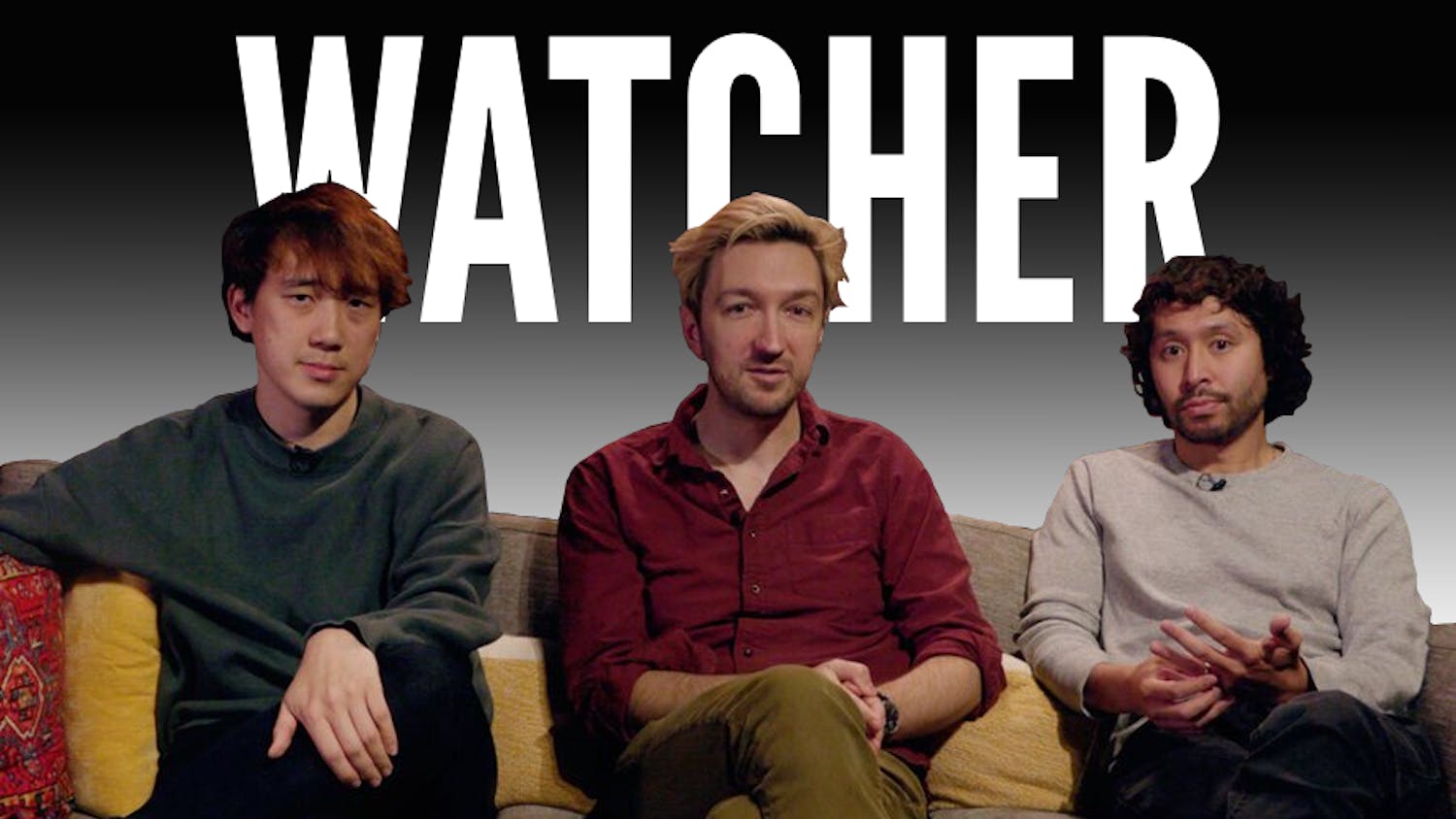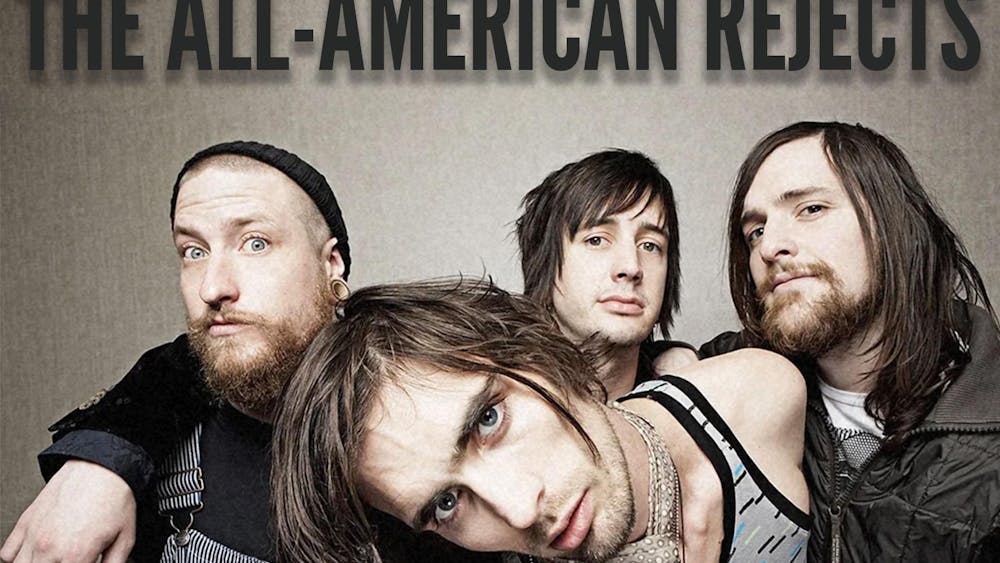This is a big moment. The fact that everything Kanye West does is important makes creating an album as ambitious and groundbreaking as "My Beautiful Dark Twisted Fantasy" tremendously risky. He didn't have to make this album. Something along the lines of "Graduation," with two or three pop-radio singles we all know West is more than capable of creating, would have suited critics and fans just fine.
But, as any history aficionada will tell you, "just fine" doesn't quite make the books. This album could have failed miserably, and the M. Night Shyamalan comparisons would resound in the deep. Thankfully, this is not the case.

The album was released a mere week ago, and yet, any new acclaim seems stale. A five-star review from Rolling Stone (which only happened 15 times last decade), a perfect 10.0 from Pitchfork Media (which hasn't happened since 2002) and countless other rave reviews have saturated the collective cultural response. The substance of acclaim, however, has been devoid of the macro and remained anecdotal and specific. This is surprising, considering the album is a bigger temptation for ridiculous claim-making than a Radiohead LP.
The best acclaim is simple and direct: "Fantasy" is more than likely the greatest hip-hop album of all time. Nothing Nas, Jay-Z, Wu-Tang Clan, Run DMC, the Beastie Boys or any other big leaguers have done before can compare in the slightest.
"Fantasy" is magnificent and epic. It walks the line between innovation and mastery with style and beauty. Production-wise, the album is perfect. At times, it sounds as if West dug Phil Spector's Wall of Sound from the grave and throttled it back to life with his inverted, Auto-Tuned electricity. If Spector weren't in prison, I would've suspected collaboration.
West has crafted a masterpiece that both highlights his career thus far and defies the limits that he himself set for the pop world. It's the orchestration, the spoken word, the non-hip-hop moments of the album that remind the listener that no one has done or is doing what West does.
The album's opening track is one of its best. Before launching into one of the finest productions The RZA has done since 1995, Auto-Tuned cadences rise to a climax. Hallucinatory magic transcends the scene. "All of the Lights" is the highest moment in a perfect album. Drum patterns and horns like fireworks envelop and illuminate a melodic triumph rife with both beauty and desperation. The song features over 11 popular artists, from Kid Cudi to Elton John, in a continuous masterpiece that sounds like the anthem of a generation.
This leaves us to discuss "Runaway," the ninth song on the album and the best hip-hop track of the last 30 years. Understanding the greatness of "Runaway" is similar to understanding Kanye West in general. Thus, most Kanye opponents despise this song more than any of his other songs, and similarly despise any notion that the song posses a quality of greatness.

This dynamic, however, is exactly what makes the song so great. Beginning with minimalist piano punches and a perfectly crafted drum pattern, "Runaway" becomes West's most accurate portrayal of how the public perceives not only him, but also hip-hop artists in general. In a self-loathing salute, West pilots the genre into existential self-awareness. Hip-hop is staring in the mirror. The song is honest, divisive, cruel and enticing.
The rest of the songs are nothing less than Kanye classics. The complaint of song length, many far passing the six-minute mark, has been made on numerous occasions, though only two or three songs are truly overbearing. Nobody is claiming the album is perfect. Many moments are too bizarre, many too self-indulgent. But it all fits within the complex of the album. This is Kanye's fantasy, both beautiful and twisted.
It's only natural, after an artist has created what many assume to be his magnum opus, to make some ridiculous comparison that seems to make sense only after the stormy sea of critique and acclaim has calmed. Kanye West is not our generation's 2Pac. He is not our generation's Nas or Notorious B.I.G. Neither is he a Springsteen, a Sinatra or a Mozart. He isn't even the Beatles. I suppose there is positive significance in the futility of comparison for West. Most great artists sculpt their own seat in history, rather than filling some retired artist's mold.
Indeed, no fair comparison will or should be made for West. However, the brilliance of the album begs an intriguing question. Who else could have made this album? The answer is simple: The Beatles, and that's about it. Not even Michael Jackson, had he the funds and enterprise to break with the shallow and mechanized demands of ‘80s culture, could have crafted something as simultaneously ground-breaking and beautiful.
For fellow hip-hop fans who would prefer something more "ghetto," something that "goes harder," I kindly direct you back to the 1990s. Beginning with "The College Dropout" and finalized by the release of "Fantasy," hip-hop has been snatched from the hands of thugs and placed back where it belongs. For those who waited patiently through the mindless, philosophically-drab and morally-repugnant gangster-rap dominance of the late 1980s and early 1990s for a pink-polo-wearing Chicagoan to turn the tide, this is our moment, as much as it is West's.












